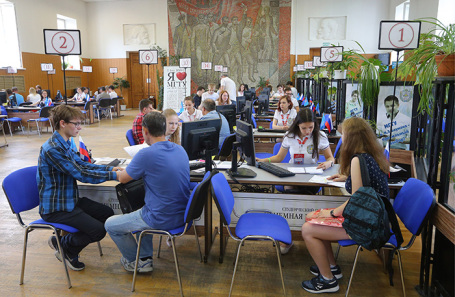Applicants in Russia have submitted 1.5 million applications for university admissions through the government`s Gosuslugi portal. This figure is one and a half times higher than the number recorded during the same initial three weeks of the admissions campaign last year.

Does this significant increase necessarily mean a surge in the number of people in the country seeking higher education? Ivan Sidelnikov, Executive Secretary of the Bauman Moscow State Technical University Admissions Committee, clarifies:
This year, new levels of education were added to Gosuslugi. While last year only Bachelor`s and Specialist degree programs could be applied for through the portal, this year it includes Master`s, Residency, and Postgraduate programs. This expansion means the pool of applicants for various educational levels has broadened, naturally leading to an increased number of applications. Another point to clarify is that when we mention 1.5 million, we are referring to applications, not individual applicants. One applicant can submit up to 25 applications. If a student also applies for paid places, that could double the number of applications for different specialties to 50.
Regarding the most popular state-funded specialties – informatics, pedagogical sciences, clinical medicine, and law – what is your impression?
It doesn`t surprise me at all; this trend has been evident for a long time. Yes, there`s a clear push towards IT, and IT is globally dominant – everyone wants to be an IT specialist. Pedagogy is traditionally popular in terms of competition, though the challenge lies in the gap between graduating and starting a teaching career. The current gap in pedagogy is for specialists in physics, informatics, and mathematics. Most universities initially enroll students in general pedagogy programs and then try to specialize them during or after admission. However, the reality is that, for example, universities haven`t been able to recruit physics teachers for several years now; students aren`t choosing physics, which means there won`t be physics teachers for, say, the next two years. This is a real problem. For law, there are very few state-funded spots across all universities, but many applicants, creating what`s called a `low base effect`. Even if there are only a thousand spots nationwide, with 100,000 applicants for those spots, the competition will be high. In contrast, engineering specialties might have 70,000 spots and 100,000 applicants – resulting in lower competition, less interest in terms of ranking.
The expert community notes no significant shifts in the list of the most sought-after specialties. According to Yevgeny Bely, Doctor of Technical Sciences, Professor, and author of the `Science and Universities` Telegram channel:
Frankly, there aren`t any major fundamental changes compared to previous years. Perhaps only a slight dip in economic fields due to the low number of state-funded places and some limitations in paid admissions. Additionally, high school graduates performed quite poorly in social studies this year, with a large percentage receiving failing grades.
What about engineering specialties, which the government has been promoting in recent years, but aren`t in the top? They have never been in the top, but some changes are occurring. More people now have the opportunity to participate in the competition and apply for technical specialties. However, rapid changes shouldn`t be expected here. Of course, the authorities would like to redirect people from economic, legal, and medical fields to technical ones in just a couple of years, but that`s simply not how it works.
The university admissions campaign this year concludes on July 25th.











